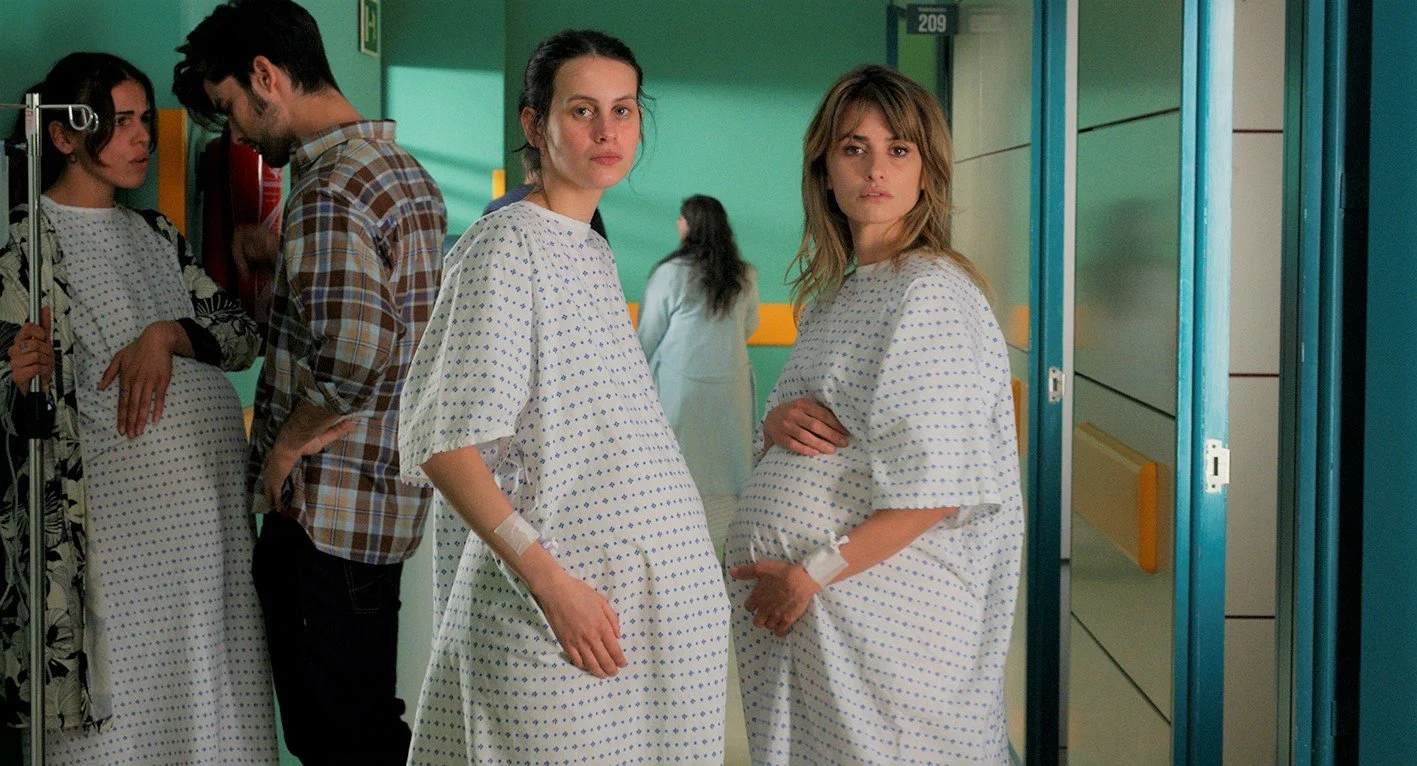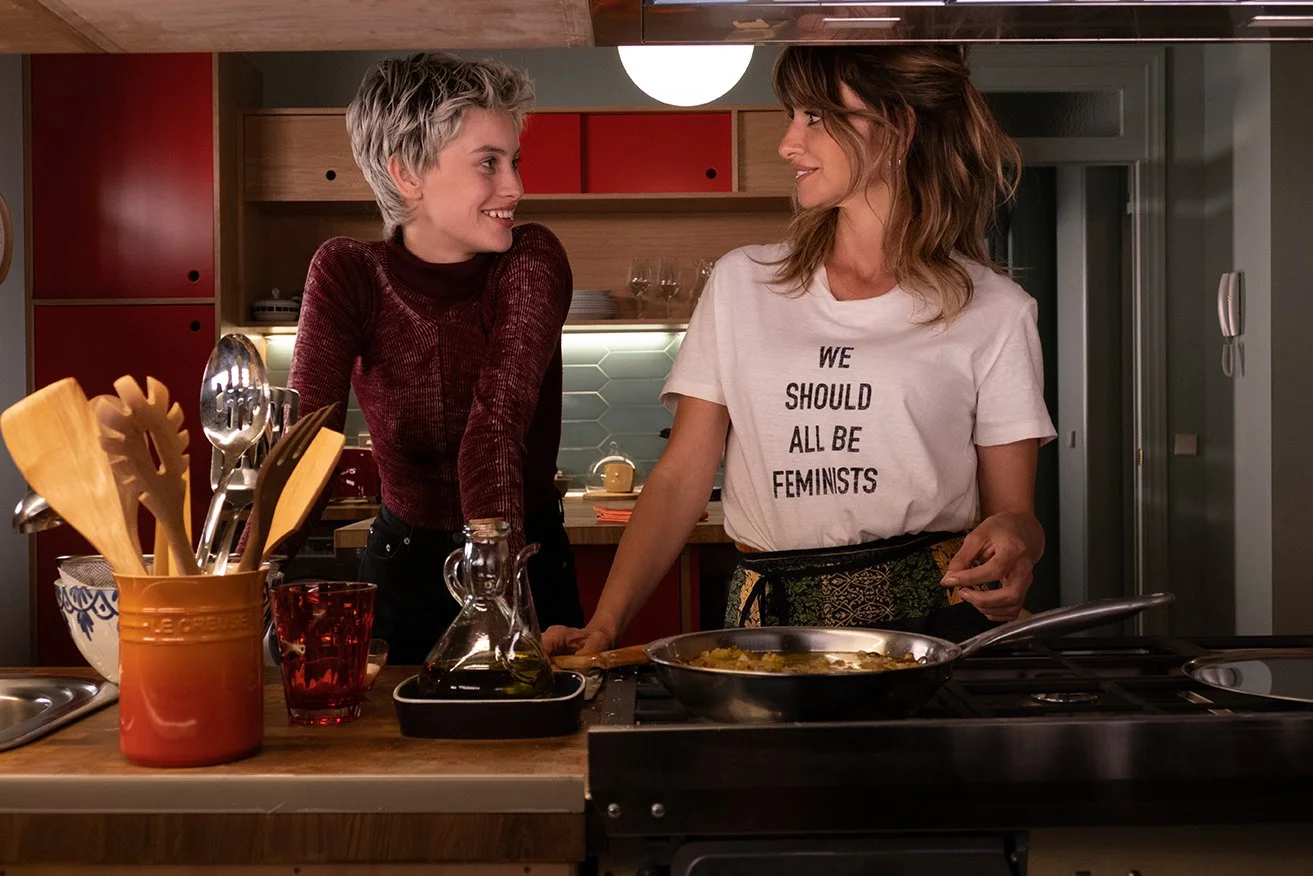Mother Knows Best
Almodóvar and Cruz are at it again, this time to interrogate how the past creeps into the present, all in primary colour blocked glory.
Parallel mothers
Director: Pedro Almodóvar • Writer: Pedro Almodóvar
Starring: Penélope Cruz, Milena Smit, Israel Elejalde, Aitana Sánchez-Gijón, Julieta Serrano, Rossy de Palma
Spain • 2hrs 2mins
Opens Hong Kong May 19 • IIB
Grade: A-
Pedro Almodóvar is well known for his affinity for women. He’d made a pile of movies before he got really famous thanks to Women on the Verge of a Nervous Breakdown in 1988, and since then he’s been fixated on women. And if we’re going to nitpick, on mothers and their relationships, often, to their daughters, starting with All About My Mother (1999), to a degree Volver (2006), and the gloriously colour-blocked Julieta (2016). In between he’s managed to amass a laundry list of well-rounded, fully realised female characters, with strengths and weaknesses, who are kind and who are reprehensible, and he’s done it without leaning on the crutch of “lady assassin” or “rape avenger.” It’s almost as if Almodóvar sees women as complete beings. Alert the media.
But none of those films was simply about motherhood. They were also about identity, HIV/AIDS, sex work, truth and lies, addiction and regret among other heady subjects. The same can be said of his most recent, Parallel Mothers (Madres paralelas), into which you can throw the weight of Spain’s complicated past.
Almodóvar’s feminine avatar, Penélope Cruz (his male stand-in is, of course, Antonio Banderas) plays Janis Martínez, a photographer who gets pregnant after a brief fling with a married man, Arturo (Israel Elejalde). More crucially, when Janis is in hospital, she meets Ana (Milena Smit), another soon-to-be single mother, which whom she strikes up a friendship. After labour they keep in touch and update each other on their little angels, Ana living with her mother and Janis finding support with her friend/agent Elena (Women on the Verge’s utterly fabulous Rossy de Palma). Arturo is still hanging around, mostly because he’s a forensic archaeologist that Janis asked to look into a mass grave in her home village. When he sees their baby, he comments that she looks nothing like him. That sticks, and Janis confirms it is indeed not her baby after a DNA test. She tells no one.
If you can’t guess where this is heading, you’ve never seen a movie. But it doesn’t matter, because plot mechanics are simply something Almodóvar uses as a way to explore deeper ideas. Just as key to the story is Janis’s request for Arturo’s help. Her family insists her great-grandfather’s body was dumped in the grave during the Spanish Civil War, and they want confirmation for a proper burial. And Janis and Ana’s twisty, sometimes one-sided relationship provides the rest of the meat.
Parallel Mothers has elements of melodrama to it – how can it not? Almodóvar’s never met a melodrama he didn’t love – and it doesn’t have quite the masterful weaving of narrative threads that his best films do. But “okay” Almodóvar is better than most directors’ best, and armed with Cruz doing some of her best-ever work, it’s still a densely packed, thought provoking pleasure. As Janis and Ana forge a tighter and tighter bond each passing day, the ghosts (almost literally) of Spain’s past threaten to exert themselves on them as much as their own histories do. Through it all, Almodóvar keeps his focus on the central women, and their capacities to grow, learn, rage, forgive and more than anything support each other. The thing that makes Almodóvar’s women so tangible is his unwillingness to judge. Nothing is ever “wrong” so to speak; it just is. Ana’s mother, aspiring actress Teresa (Aitana Sánchez-Gijón), acts on her personal ambitions, and leaves her traumatised teenaged daughter alone to tour with a theatre company. In anyone else’s hands Teresa is a bitch, but Almodóvar makes it a decision for an adult woman to deal with, or regret, as she sees fit. Same for Janis. Same for Ana. Add in the requisite luminous visuals, primary colours and Hitchcockian score by Alberto Iglesias and you have the makings of a near-classic Almodóvar joint. He uses his last name solo for good reason. DEK




